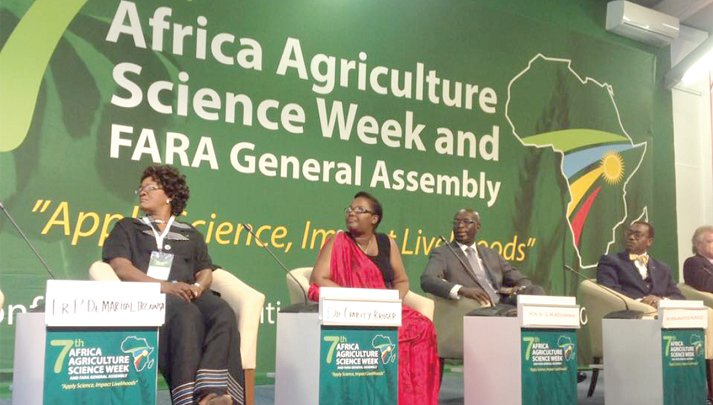
Rwanda’s ‘not business as usual’ approach — A story from the heart
Participants in the 7th Africa Agriculture Science Week (AASW) and the General Assembly of the Forum for Agricultural Research in Africa (FARA) being held in Kigali, Rwanda, were ready for a usual presentation on Developing Human and Institutional Capacity but the first words of the presenter were enough to generate high interest in the presentation.
Advertisement
“I will tell you a story and it is from my heart”, said Peter Malinga, National Capacity Building Secretariat, Rwanda, as he began his presentation. “My presentation is not a scientific presentation; it is more of a testimony”, he went on. At this time he had the full attention of participants as he proceeded to share the unique story of how Rwanda was building local capacity and the approach adopted by the government.
The story
It all began right after the 1994 situation when the effort of the government was directed towards rebuilding the society and country which had become a failed state. This was an era when the country was trying to reconstitute each and every sector of the society, including agriculture. It started to address issues of the heart and mind – unity and reconciliation.
When the world started implementing MDGs, Rwanda also came up with Vision 2020 to implement alongside the country’s own programme. It was a case of tackling rehabilitation, development of national plans, the first being poverty reduction programmes, reforming the public sector and rebuilding the state. “We started setting up institutions that could run the country and build a common vision”, he said.
The journey
He said the journey over the past 20 years had not been simple and could not be wished away. With the foundation that had been laid to address development issues, we saw government ministries and district offices all talking about priorities and strategic forecasting which were critical in addressing development issues.
Challenge
Achieving the MDGs and Vision 2020 for Rwanda was impacted by capacity challenges. “Our initial attempts to address the capacity problem was stand alone, scattered and overlapping and this produced mixed results which called for a second look at the approach”. In 2005, Rwanda came up with a capacity improvement programme and mobilised funds from the world bank and African Capacity Reformation to finance the project. Rwanda adopted a non-sectoral private and public sector/civil service partnership. An institution was set up to coordinate and implement the programme. Currently, Rwanda has a government agency - the National Capacity Building Secretariat (NCBS) that is cross cutting in membership, managing capacity building in Rwanda.
Data to factor into plans to facilitate the project continues to be a challenge. In addition to that, they were also confronted with the kind of tools to apply in capacity building. There were also synergies that had to be harnessed.
Not business as usual
In the midst of all of those, Rwanda decided to adopt what Peter referred to as a “not business as usual” approach. “Rwanda did not think capacity building should be driven by donors. It must be driven by government and key actors.” The country’s approach to addressing capacity building was first and foremost to determine the gaps and the sectors needing capacity support. Funding is sourced and human capacity building programmes and projects are developed. After all those, support for the programme is mobilised.
Other Trending Stories
In 2014, the country put in place a national Capacity Development Coordination plan among others, driven by the capacity-building agenda. As a result of the importance of this to Rwanda, capacity building had its own budget and was placed under the Ministry of Finance. The co-chair of the capacity building setup was drawn from the private sector.
Again, Rwanda looks at good practices in other countries and adopts some of the approaches. The country has also ensured that its citizens benefit from the skills of consultants through knowledge transfer.
Lessons
He encouraged African governments seeking to build capacity to among others, use experiences and success stories available globally to inform their capacity-building agenda. Peter cautioned against “copy and paste” approaches. “It is best to customise”, he concluded.




